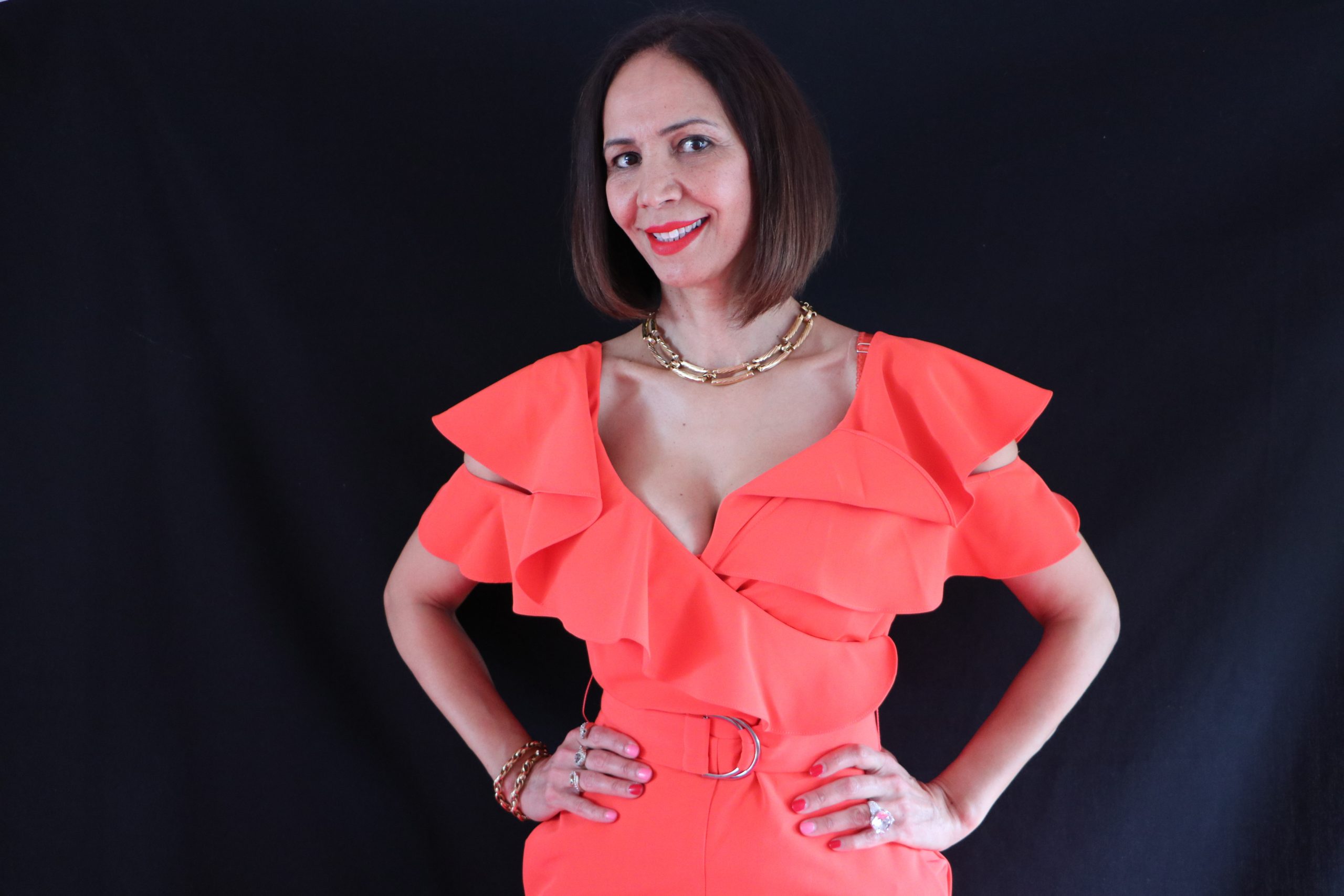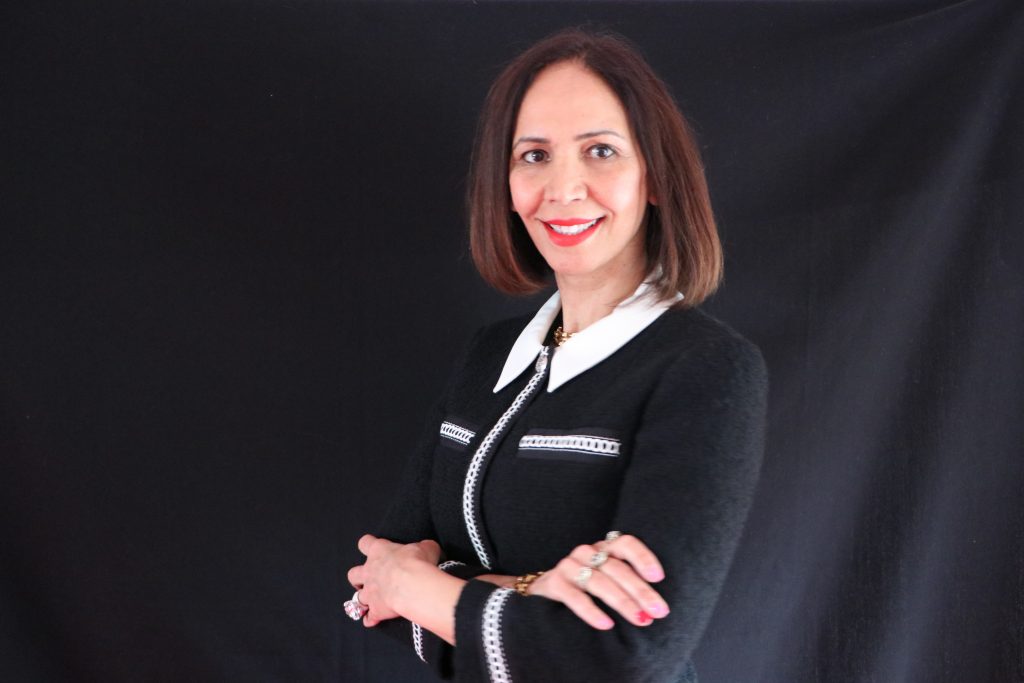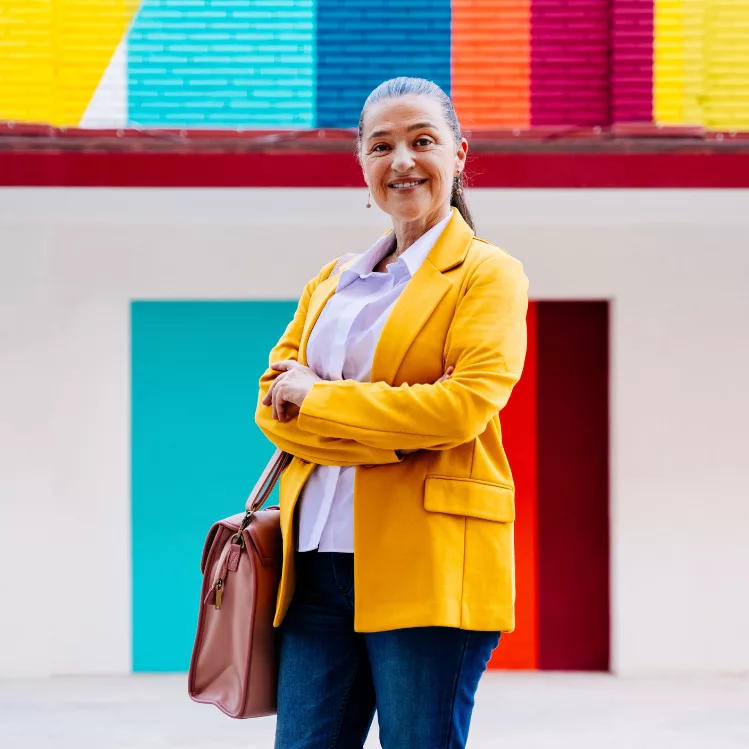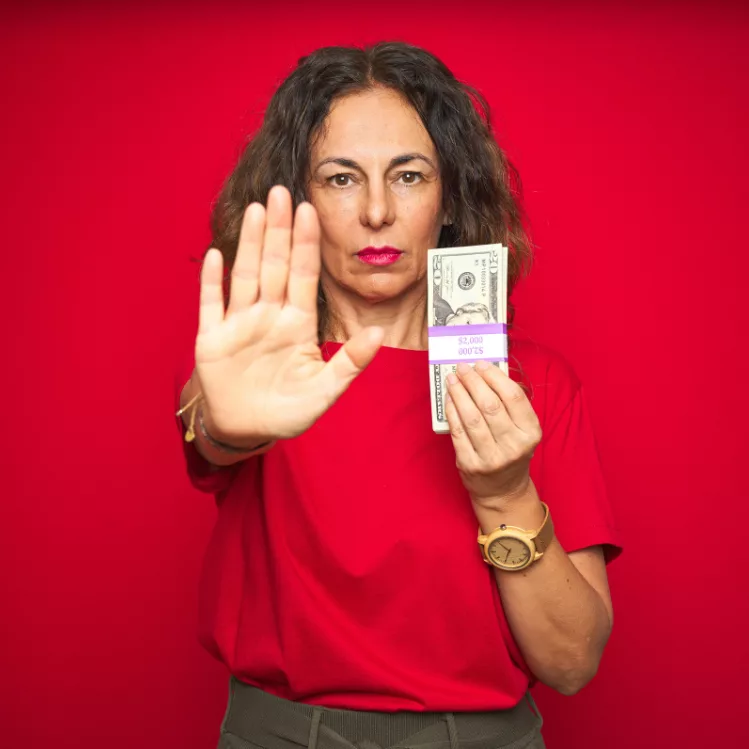
Saloua Miladi: Finding Freedom and Empowerment Through Motherhood and Fashion
By Cynthia Vera
Growing up in a family full of ambitious and highly driven individuals in the dreamy yet small country of Tunisia, tucked away at the northernmost border of North Africa and the Mediterranean Sea, Saloua Wood never failed to feel motivated to chase her dreams. With a flair for creativity and a collective passion for fashion, Wood’s family members embraced the fashion world to its full capacity as clothing manufacturers, designers, and tailors which influenced her tremendously from a very young age.
After moving to the UK and having her daughter shortly after the move, Wood had to make the difficult decision to put her modelling and fashion career on a halt to focus on her daughter. For Wood, motherhood is everything to her, with her daughter being the very oxygen she breathes; and this was a sacrifice she would happily do all over again.
Recognising that a love for fashion will always run in her blood, the single mother made the courageous decision to get back into fashion and education, leading her to complete her studies at the London College of Style as a Personal Shopper, and Stylist. Now on a mission to build her empire and utilise her passion to empower women through fashion and style, the empowered mother and entrepreneur is ready to help individuals build a self-assured and confident sense of identity bursting with style.
You moved to the UK in 2000 which must have been a massive cultural shock. How did you adjust to this change in environment and culture and what are the biggest differences between Tunisia and the UK?
The move to London had a limited impact on me as I already had friends here and had been visiting for holidays for several years, meaning I already had a good idea of what to expect.
In Tunisia, we spend a lot of time outside, whether we are eating, sleeping, going to the beach or any other social interactions. This country’s (UK) climate doesn’t really lend itself to this lifestyle to the same degree, particularly with respect to the beaches and swimming. With Tunisia’s recent development heavily influenced by the Italians and French, we love food and having meals together which are very important just the quality and freshness of the ingredients. Whilst the variety of fresh foods available has improved a lot in the last 20 years, genuinely good, flavoursome, fresh produce can still be difficult to find. I believe that shipping over large distances in deep chilled conditions does not help. Tunisia is only a small country and people are very “connected”; we are a noisy and gregarious lot, obviously a Mediterranean people.
In London I found that, whilst most people are polite and helpful, they do tend to keep themselves. What was difficult to cope with was the absence of family: back home in Tunisia, I have a large family and we spent a lot of time socialising together. Naturally, living in England means a loss of this opportunity and visits are much harder and limited because of the strict visa requirements – particularly for my family to make frequent visits to England.
What I have enjoyed most is that London has way more opportunities for a person to develop; a liberal society with much greater freedom and far less social pressure – in Tunisia, people are far more judgmental and demanding of compliance with the old expectations.

Growing up in Tunisia, you were surrounded by fashion lovers in your family which no doubt had an influence on your passion for fashion. What made fashion so exciting for you?
Again, the section of Tunisian society that I was born into and grew up in was heavily influenced by Italian and French cultures: as well as food, fashion was a very important part of life and my family has had a long involvement in it, so it’s in my blood.
My family members are clothing designers, tailors, and manufacturers; so, fashion was a major part of, and influence on, my life growing up. My father was a well-respected doctor and conscious that his appearance returned the respect of his patients. My mum and my sisters were always glamorous and my brothers well-groomed. They wouldn’t dream of leaving the house in a less than perfectly ironed shirt.
For me, the excitement came from seeing my family’s creativity being acknowledged on a physical level. One example that comes to mind is when one of my sisters produced an identical copy of Princess Diana’s wedding dress for her own wedding. She worked out the materials used, how they had been cut and put together and then replicated it using her own hands and skills. These influences have stayed with me ever since.
After your daughter was born – shortly after you moved to the UK – you had to decide whether or not to move forward with your modelling career. Can you tell us a bit about this, what was going through your mind when you finally came to a decision?
Unfortunately, the circumstances were difficult: I had little opportunity for help from my family as they were in Tunisia, France, all around the world, and whilst my mum was able to be with me for my daughter’s birth, they were only able to visit occasionally as visas are often limited.
After spending the early period of motherhood with my daughter, I decided to get out to start my studies and use child-minders to care for her. I tried this for a period of time but found a number of issues which meant that I was not happy or comfortable with the standard of care being provided. Accordingly, I decided to put my studies and career on hold and devote my time to bringing up my daughter.
Frankly, at the outset I was so excited to discover that I was going to be a mum and this feeling was still very strong in me and that made that decision easier.
As a single mother raising a daughter whilst completing your own studies at London College of Style to pursue your own career, what does motherhood mean to you?
Motherhood is everything to me. My daughter is the oxygen I breathe. It’s a special feeling and I am driven to help her in every way to succeed. For example, I devoted a lot of time to supporting her through her school exams and this has paid off greatly; she’s turned out to be a very bright girl and achieved great results.
Once she was at school, I found a degree of freedom for myself and had the opportunity to take various part-time jobs as well as completing my diploma as a beautician.
Happily, the sacrifice was worthwhile, and my daughter is now at university, studying Law, where she is doing very well. She has matured beautifully and now is reciprocating my support by helping me when I need it.

You’re in the early stages of developing your own business in fashion as a stylist and personal shopper. What was the motivation behind this new journey that made you start your own business?
I have always wanted to work and, particularly, to start my own business. This desire is in my family’s blood too: my father was very successful in his career as a doctor and this drive and ambition has passed down to his children in their chosen fields, where my brothers and sisters have been successful in their own businesses and ventures.
Fashion styling started as something of a hobby, just helping friends. One in particular asked for my help with his style and as a result of the changes we worked on together, he lost weight, found a new style in clothing and hair and became a completely new, more confident, elegant person. He was so happy with the outcome, finding that he enjoys life much more than he did before and that this change opened doors for him. He said to me “you have changed my life”. Understanding that what I had done for him had improved his life, I realised that I could do the same for others, helping them to change their lives for the better.
To expand my skills and understanding, I attended the London College of Style where I graduated with Distinction as a Personal Shopper, and Personal/Fashion/Celebrity Stylist and I am now getting my business started.
Fashion and style are closely linked to our identity, confidence, and sense of empowerment which are sentiments you clearly value. Why is it so important to you to use fashion to empower women?
Because I am a woman, I am very keen to see every woman develop to her maximum potential.
In this respect, I understand the power that clothing has in terms of its impact on an individual’s perception of themselves. In addition to improving their self-confidence, it has a positive contribution to their mental health and wellbeing which helps them to achieve their ambitions, expectations of themselves, and goals.
I love to dress up and when I do, I feel more confident, happy, and this gives me more drive to achieve what I want. Clothes are the first thing other people notice about a person, so it forms the basis of their first impressions. This means that a person’s clothes say a lot about them and are hugely important in helping them to progress.
In my view, lipstick and a pair of high heels are tools that a woman can use to conquer the world. Just remember, don’t think that you are dressing up just to seek the approval of other people, you are doing it for yourself – first and foremost.
What fashion essentials should all women have in their wardrobe?
- Good, properly fitted bra
- Beautiful scarf
- Leather jacket
- Blazer
- Trench coat
- Styled coat (for warmth and fashion)
- Simple versatile sweater
- Good white shirt
- Two good quality t-shirts (matching your skin tone)
- Smart skirt
- Little black dress
- Fitted jeans
- Pair of nude high heels
- Pair of versatile shoes
- Pair of white trainers
- Pair of boots
The items don’t need to be top-end, designer clothing or very expensive.
Aside from being a mother and businesswoman, you’ve recently started writing your eBook through the Global Woman Book Project. What can we expect from it?
Naturally, this is a work in progress so I don’t want to say too much about it at the moment, but I shall be developing the idea of the power of clothing and its help to open doors. This applies to both women and men, so watch this space!





